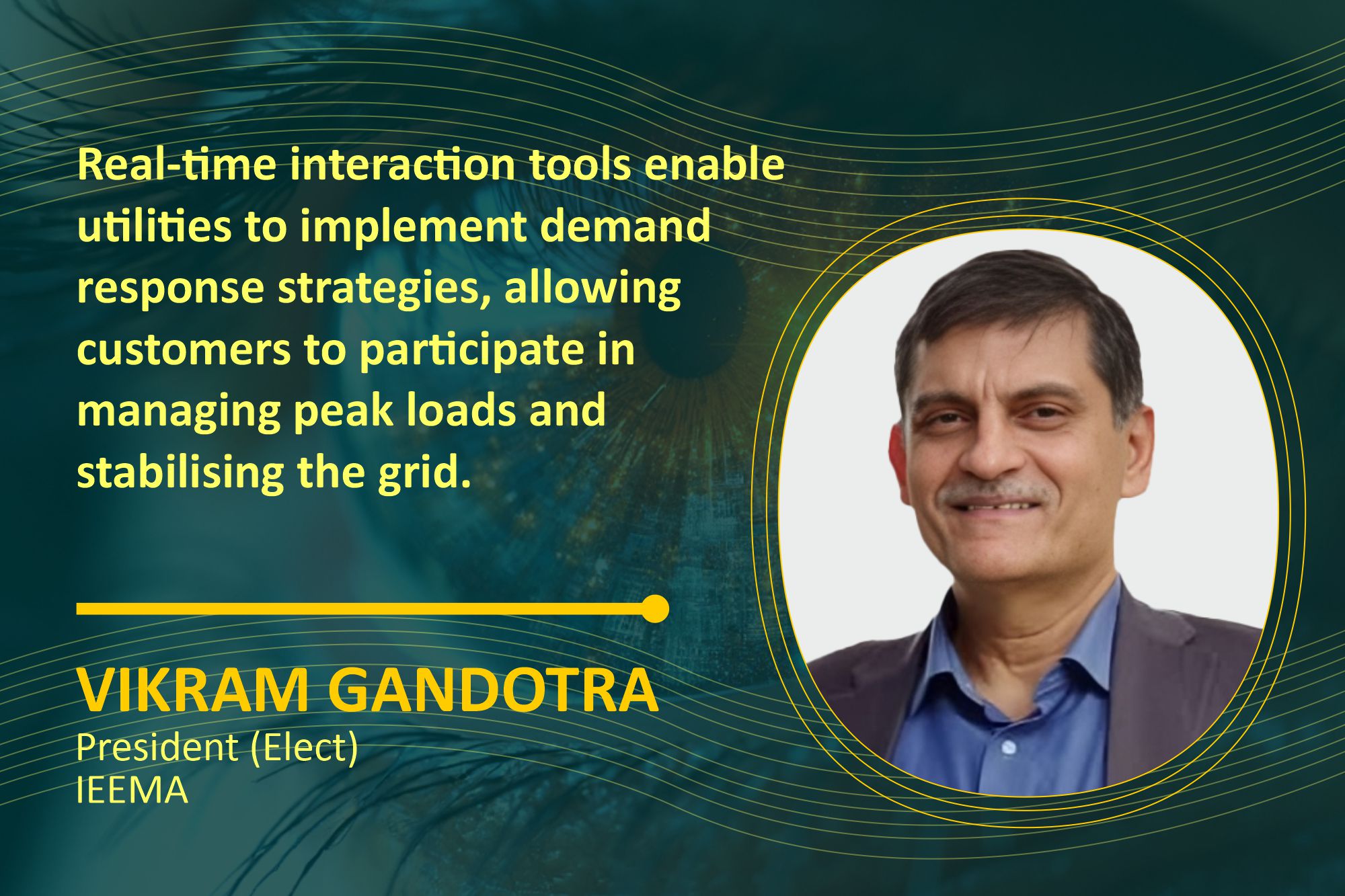Advancements and applications of smart grids propelling the energy landscape
By EPR Magazine Editorial December 23, 2024 7:22 pm IST
By EPR Magazine Editorial December 23, 2024 7:22 pm IST

The journey of smart grids in India began around 2010, marking a significant milestone in the country’s energy evolution. Establishing the India Smart Grid Forum, a joint initiative with the government, set the stage for developing smarter energy systems. Over time, organisations like IEEMA and the National Smart Grid Mission have contributed to this transformation. This collaborative effort has resulted in substantial progress, including investments and innovations in smart grid technologies. AI ML and new technologies play a major role in these advancements. However, the real promise of these advancements lies in how they address critical issues at the Discom level and beyond.
At the forefront of smart grid applications is power portfolio management. Utilities face the challenge of balancing diverse energy sources, such as renewables, conventional power, and future storage solutions. Advanced demand forecasting and intelligent energy mix optimisation can ensure utilities maximise efficiency while meeting demand. Cutting-edge planning tools complement this beyond traditional load flow and stability analyses. Geographic Information Systems (GIS) and Building Information Modeling (BIM) tools now offer precision and visualisation capabilities that revolutionise substation design and system planning.
Asset management represents another transformative application. Real-time monitoring of critical assets can preempt failures and reduce costs by enabling proactive maintenance. Visualisation tools provide utilities with actionable insights into asset health, improving reliability and minimising downtime. Similarly, load management tools enhance the balance and efficiency of distribution networks. These tools reduce technical losses and improve overall grid performance by addressing phase imbalances and optimising feeder loads.
Behind the meter, the landscape is changing rapidly. Innovative tools are being piloted to analyse the signature of consumer loads, enabling personalised guidance for more efficient energy usage. Such advancements empower consumers while contributing to grid stability. On the other hand, in the unfortunate event of a breakdown, intelligent reconfiguration systems can minimise outages and restore power to most consumers quickly.
Smart metering and revenue management have received the most attention, given their direct impact on Discom finances. The rollout of smart meters in India is among the largest in the world. These meters reduce losses, ensure accurate billing, and improve revenue collection. As the rollout expands, it promises to transform utilities’ financial health and elevate their operational capabilities.
Customer engagement is another critical area where smart grids are making a difference. Real-time interaction tools enable utilities to implement demand response strategies, allowing customers to participate in managing peak loads and stabilising the grid. This fosters a mutually beneficial relationship where customers save on energy costs and utilities maintain grid stability.Efficient supply chain management is also essential in modernising utilities. Intelligent inventory systems optimise spare parts availability, reducing both costs and repair times. By networking utilities and sharing resources, the overall efficiency of the energy ecosystem is enhanced.
Skill development is a foundational pillar for the success of smart grid initiatives. Despite technological advancements, many utility personnel and associated workers lack the necessary expertise to implement and maintain new systems. Training programmes using advanced tools can bridge this gap, enabling quicker adaptation to evolving technologies. On-site learning solutions ensure that workers remain up to speed without requiring extensive downtime.
Emerging loads like electric vehicles (EVs) pose new challenges but offer opportunities. AI and ML-powered charging management systems are essential for integrating EVs into the grid. These intelligent systems ensure optimal charging schedules, prevent overloading and enhance network efficiency. Such technologies are crucial for building a resilient and sustainable energy infrastructure.
We use cookies to personalize your experience. By continuing to visit this website you agree to our Terms & Conditions, Privacy Policy and Cookie Policy.